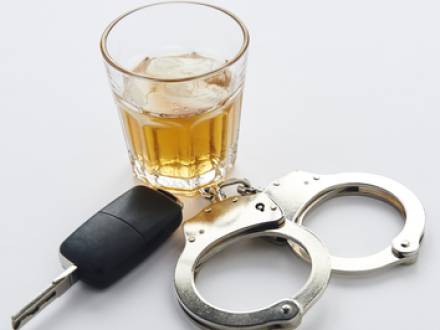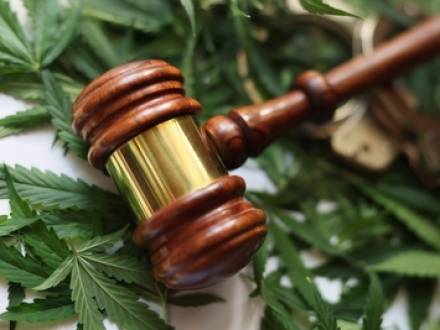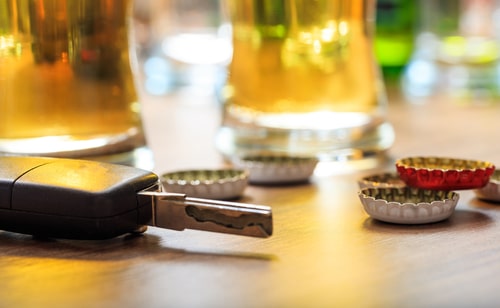2591 Dallas Parkway, Suite 207A, Frisco, TX 75034
Free Consultations
469-333-3333
 |
DO I HAVE TO GO TO TRIAL IN TEXAS? |
Recent Blog Posts
Common Evidence in Texas DWI Cases
 In Texas, a charge of driving while intoxicated (DWI) can come as a serious shock if you have never had an encounter with the law before. Your first impulse may be to panic, but do not assume that the case against you has been decided just because you have been arrested. A Texas DWI defense attorney can review your case and question the prosecution’s evidence, exploring possible avenues to get the charges against you reduced.
In Texas, a charge of driving while intoxicated (DWI) can come as a serious shock if you have never had an encounter with the law before. Your first impulse may be to panic, but do not assume that the case against you has been decided just because you have been arrested. A Texas DWI defense attorney can review your case and question the prosecution’s evidence, exploring possible avenues to get the charges against you reduced.
At Law Offices of Biederman & Burleson P.L.L.C., we are highly familiar with the ins and outs of DWI charges in Texas. We can lend clear insights into your case and give you a better understanding of what evidence may be used against you. No matter the case, you can rest assured that we will do everything in our power to defend you in court.
What Chemical Tests Are Used for DWI Arrests?
Police officers often use blood or breath tests to determine a driver’s level of intoxication. This gives the prosecution a more scientific basis than hearsay or observations. The metric for impairment is known as BAC, or blood-alcohol concentration. If your BAC is at least .08 percent, you can be charged with driving while intoxicated.
What You Should Know About Assault Charges in Texas
 What starts as a quick scuffle can end with you in handcuffs and charged with a serious crime. Assault is strictly prosecuted in Texas, and depending on the specifics of your case, you could be sentenced to years in prison. A Texas criminal defense attorney can advise you of your rights if you have been charged with assault and help you build a strong defense.
What starts as a quick scuffle can end with you in handcuffs and charged with a serious crime. Assault is strictly prosecuted in Texas, and depending on the specifics of your case, you could be sentenced to years in prison. A Texas criminal defense attorney can advise you of your rights if you have been charged with assault and help you build a strong defense.
Working with a skilled legal professional is immensely helpful for fighting a criminal charge. At Law Offices of Biederman & Burleson P.L.L.C., we are up-to-date on all laws surrounding assault in Texas. We can explore all possible defenses to help protect your rights.
Is Battery a Crime in Texas?
Many states make a distinction between battery and assault as separate acts. Usually "assault" refers to a threat of physical violence, while "battery" often refers to the act of making unlawful contact with someone else. In Texas, the two are one and the same. Making threats of violence toward another person is already covered under the state’s definition of assault.
Penalties for Shoplifting in Texas
 Getting arrested for shoplifting in Texas may not initially seem like a major problem. However, you may face strict prosecution in court, with irreversible consequences if you are convicted. If you have been charged with shoplifting, the best thing you can do is contact a Texas criminal defense lawyer as soon as possible.
Getting arrested for shoplifting in Texas may not initially seem like a major problem. However, you may face strict prosecution in court, with irreversible consequences if you are convicted. If you have been charged with shoplifting, the best thing you can do is contact a Texas criminal defense lawyer as soon as possible.
At Law Offices of Biederman & Burleson P.L.L.C., we have experience defending against shoplifting charges and other theft crimes. When you work with our firm, we will give you a clear idea of the charges you face, the potential consequences, and how we can defend you. We have the resources and skills to represent you with confidence, protecting your rights in front of a judge.
Potential Fines for Shoplifting
If you are convicted of shoplifting, you could end up paying a hefty fine as a consequence. Shoplifting is prosecuted under Texas’ theft statute, and the fines increase based on the severity of the sentence.
How Should I Respond to a DWI Stop and Arrest?
 If you have never run afoul of law enforcement before, getting pulled over on suspicion of driving while intoxicated (DWI) can be an incredibly stressful experience. Unfortunately, this is where many people panic and end up making simple mistakes that hurt their own cases.
If you have never run afoul of law enforcement before, getting pulled over on suspicion of driving while intoxicated (DWI) can be an incredibly stressful experience. Unfortunately, this is where many people panic and end up making simple mistakes that hurt their own cases.
The best way to avoid a DWI charge is to avoid drinking and driving. However, if you are stopped by a police officer on suspicion of DWI, you can take steps to protect yourself before you get in contact with a Texas DWI attorney. At Law Offices of Biederman & Burleson P.L.L.C., we have handled hundreds of DWI cases, and when you work with our firm, we will strategize with you to determine the best course of action.
Know What to Say (And What Not to)
After you are pulled over, you should brace for a series of questions from the police officer. Questions like "Do you know why I pulled you over?" are intended to get you to incriminate yourself, supplying evidence to the prosecution. Whenever possible, you can give noncommittal answers like "I’m not sure" or request your right to an attorney instead of answering.
The Best Defenses Against a Marijuana Possession Charge
 A marijuana possession charge can have serious implications for your freedom in Texas. The courts do not take drug crimes lightly, and if convicted, you could be saddled with a criminal record. A Texas drug crimes attorney can defend you against a marijuana possession charge by exploring all possibilities to protect you from the legal consequences.
A marijuana possession charge can have serious implications for your freedom in Texas. The courts do not take drug crimes lightly, and if convicted, you could be saddled with a criminal record. A Texas drug crimes attorney can defend you against a marijuana possession charge by exploring all possibilities to protect you from the legal consequences.
At Law Offices of Biederman & Burleson P.L.L.C., we have the experience, skills, and knowledge to build a strong defense against a marijuana possession charge in Texas. When you work with our attorneys, we can provide legal guidance on how to respond to a possession charge as we represent you in front of a judge.
What Is Legal Possession?
If applicable, one of the most surefire defenses against a marijuana possession charge is proving that you had a legal reason to own it. In Texas, you can get a cannabis prescription for certain qualifying conditions such as PTSD, epilepsy, cancer, or multiple sclerosis.
3 Misleading Myths About Texas DWI Cases
 You have been arrested for DWI in Texas. Many Texans find themselves in this stressful situation and wonder if there is hope. Definitely! A DWI charge can be reduced to a lesser charge or dismissed if you hire a skilled DWI defense attorney to represent you. Your case is more likely to succeed if you are not misled by common DWI misconceptions that you can easily find online.
You have been arrested for DWI in Texas. Many Texans find themselves in this stressful situation and wonder if there is hope. Definitely! A DWI charge can be reduced to a lesser charge or dismissed if you hire a skilled DWI defense attorney to represent you. Your case is more likely to succeed if you are not misled by common DWI misconceptions that you can easily find online.
If you have been arrested for DWI, speak to our Texas criminal defense lawyers. Our DWI defense attorneys have over 25 years of combined experience and over 500 trial victories in DWI cases.
Myth 1: You Lose Your Texas Driver’s License Immediately
You were arrested for drunk driving, so your driver’s license is suspended immediately, right? Wrong. You could face an administrative suspension of your license, but it is not automatic. State law offers you a chance to challenge a driver’s license suspension.
What Are the Legal Limits for Drunk Driving in Texas?
 Drunk driving can lead to severe consequences, such as steep fines, license suspension, and even imprisonment. However, a charge is not yet a conviction. Knowing the laws that apply to these cases is critical in fighting the accusations against you, even if it is your first DWI/DUI offense. If you find yourself facing a DWI or DUI, our Collin County, TX DWI defense lawyers will listen to the details of your case and help you understand how having legal representation may benefit you.
Drunk driving can lead to severe consequences, such as steep fines, license suspension, and even imprisonment. However, a charge is not yet a conviction. Knowing the laws that apply to these cases is critical in fighting the accusations against you, even if it is your first DWI/DUI offense. If you find yourself facing a DWI or DUI, our Collin County, TX DWI defense lawyers will listen to the details of your case and help you understand how having legal representation may benefit you.
What Should You Know About Blood Alcohol Concentration?
Blood alcohol concentration (BAC) is a measurement of the percentage of alcohol in a person’s blood. The levels are determined by chemical tests and used to prove charges of driving while intoxicated. The Texas legal limit for drivers 21 years and older is a BAC of 0.08 percent. The law is slightly more strict for commercial drivers at 0.04 percent. When a chemical test produces a BAC above these levels, the driver will likely be charged with a DWI.
How Do Police Find Drunk Motorcycle Riders in Texas?
 Motorcyclists are watched carefully by police, particularly when it comes to driving while intoxicated (DWI). Because motorcycles require greater balance and coordination than four-wheeled vehicles, alcohol impairment can be especially dangerous — and more noticeable to police officers trained to spot intoxicated riders.
Motorcyclists are watched carefully by police, particularly when it comes to driving while intoxicated (DWI). Because motorcycles require greater balance and coordination than four-wheeled vehicles, alcohol impairment can be especially dangerous — and more noticeable to police officers trained to spot intoxicated riders.
The National Highway Traffic Safety Administration (NHTSA) has developed a set of behavioral cues to help officers determine when a motorcyclist may be under the influence, but these cues are not foolproof. If you have been stopped and accused of a motorcycle DWI in Texas, it is essential to understand the signs officers look for and how a strong legal defense from a qualified Texas motorcycle DWI defense lawyer can challenge their conclusions.
What Signs Do Police Look for When Stopping a Motorcyclist?
Texas police officers rely on training from the NHTSA to identify motorcyclists who may be drunk. The agency has compiled a list of behaviors divided into two categories: "Excellent cues," which suggest a 50 percent or greater chance of impairment, and "good cues," which indicate a 30 to 50 percent likelihood of intoxication.
Understanding the Charge of Assault Causing a Bodily Injury
 Assault causing a bodily injury is a serious criminal offense in Texas. It involves intentionally causing physical harm to another person, resulting in harm to that person’s body, even if that harm is not serious.
Assault causing a bodily injury is a serious criminal offense in Texas. It involves intentionally causing physical harm to another person, resulting in harm to that person’s body, even if that harm is not serious.
Getting charged with assault causing bodily injury can land you in major trouble, as being convicted means significant fines and even imprisonment. If you are facing criminal charges, contact a Texas criminal defense lawyer to fight for your rights and seek a positive outcome in your case.
What Is Considered "Bodily Injury" Under Texas Law?
Under Texas law, "bodily injury" is defined as any physical pain, illness, or impairment of physical condition. This means that even minor injuries, such as bruises, cuts, or soreness, can qualify as bodily injury under the law.
Criminally Negligent Homicide vs. Intoxication Manslaughter
 When someone’s actions result in the death of another person, Texas law classifies the offense based on intent, recklessness, and circumstances. Two charges that often get confused are criminally negligent homicide and intoxication manslaughter. While both involve accidentally killing someone, the acts that fit the crimes and the penalties for the crimes are very different. If you are facing either of these charges, our Texas criminal defense attorneys are here to help.
When someone’s actions result in the death of another person, Texas law classifies the offense based on intent, recklessness, and circumstances. Two charges that often get confused are criminally negligent homicide and intoxication manslaughter. While both involve accidentally killing someone, the acts that fit the crimes and the penalties for the crimes are very different. If you are facing either of these charges, our Texas criminal defense attorneys are here to help.
What Is Criminally Negligent Homicide?
Criminally negligent homicide occurs when a person causes someone else’s death due to criminal negligence. This means the person should have, but did not, recognize a serious and unjustified risk that their actions could cause harm. Put more simply, a reasonable person in the same situation would have known that the same behavior was too risky to be safe. The key factor is negligence — not intent.


 600+ DWI & CRIMINAL DEFENSE TRIALS
600+ DWI & CRIMINAL DEFENSE TRIALS
















